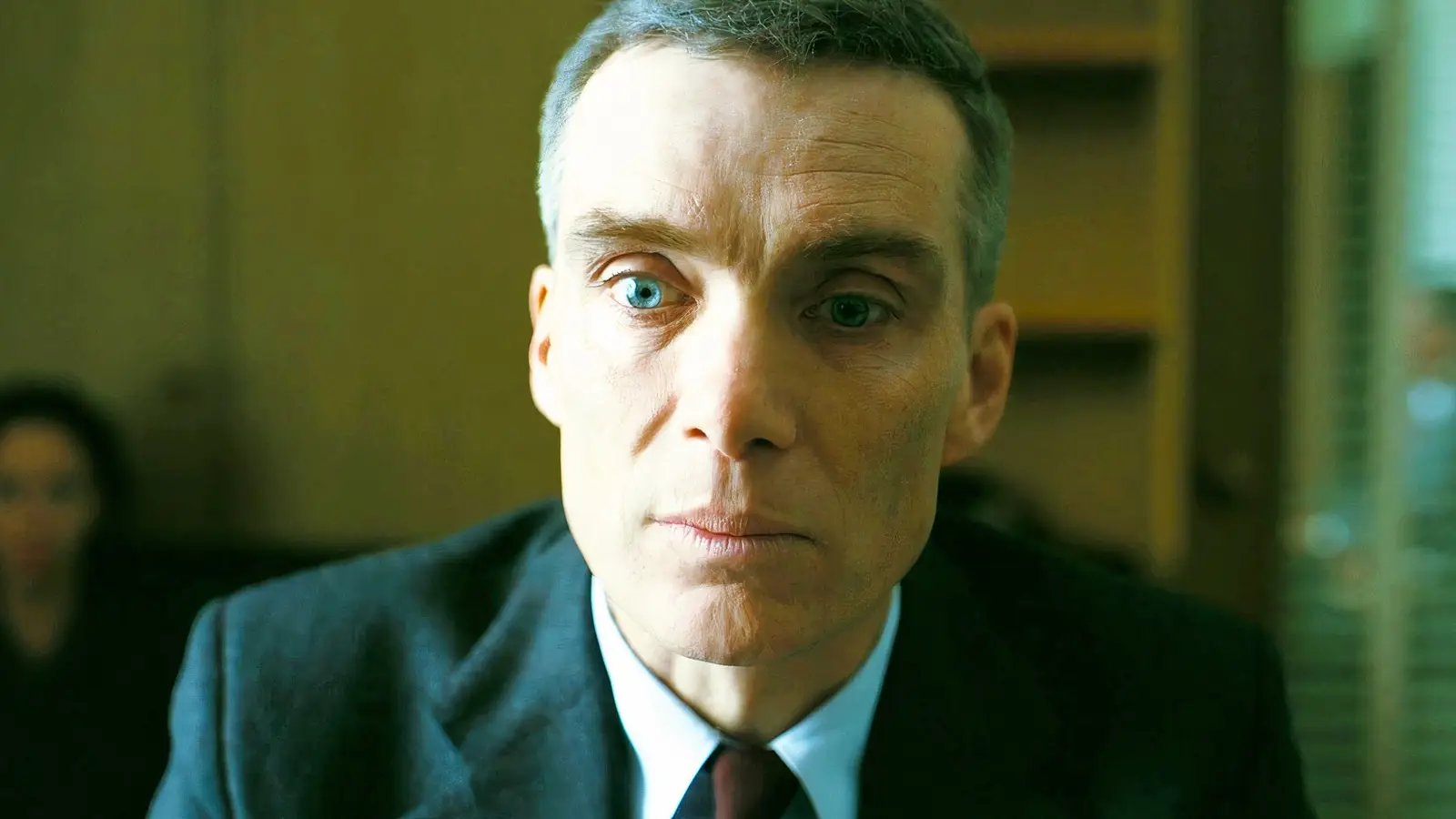
As a dramatization of an individual’s life, biopics capture the complexities and extraordinary circumstances of human achievement on screen, with some standing as absolute must-watch movies. Whether it’s a musician, political figure, or historical icon, the movie biopic offers audiences a window into the lives that have shaped the world we live in.
The greatest biopics ever made rank among the best films of all time, as their intense character arcs provide unforgettable insights into the nature of ambition, perseverance, and triumph. From epic historical stories of world-changing significance to minute explorations of personal struggle, all of these biopics offer something special and should be watched at least once.
The Elephant Man (1980)
The surreal, dreamlike style of director David Lynch proved the perfect match to depict the dark complexities of the life of Joseph Merrick (named John in the film) in The Elephant Man. As a man with severe physical deformities, John was put on display in Victorian freak shows in 1800s London and was mistreated and vilified by society at large.
However, Lynch’s The Elephant Man highlighted John’s humanity as his caring nature, vulnerability, and intelligence shone through in a powerful story of dignity and worth. With outstanding performances from John Hurt as Merrick and Anthony Hopkins as the surgeon Frederick Treves, this unique biopic highlighted the shallow way society dehumanizes those who are different.
La Vie En Rose (2007)
Marion Cotillard rightfully earned the Academy Award for her committed performance as Édith Piaf in La Vie en Rose. As a catalog of the tumultuous life of this beloved French singer, Cotillard managed to tap into the ferocity of Piaf’s immense talent while also showcasing the shocking lows of her personal life, struggles with addiction, and frailty in old age.
La Vie en Rose was truly a special film, as it rose above the typical musician biopic tropes to highlight a life characterized by resilience. As we go on a journey through Piaf’s love, loss, and illness, the tragedy of her life comes to the forefront, and we’re invited to witness not just a musical legend but a human being.
While the name Daniel Day-Lewis has become synonymous with great acting, it was early performances in movies like My Left Foot that paved the way to his cinematic greatness. As the story of Christy Brown, an Irish writer and painter born with severe cerebral palsy, Day-Lewis utilized his method acting style to capture how Christy navigated life.
My Left Foot earned Day-Lewis his first Best Actor Oscar and was an inspirational depiction of a stubborn, difficult, but ultimately gifted man. Taking us from Christy’s childhood, where he was unable to walk or talk, right up to him writing his autobiography, My Left Foot captured, like few films before it, mankind’s ability to overcome almost any challenge.
Lawrence Of Arabia (1962)
The incredible life of the British army officer T. E. Lawrence was given the big-screen treatment in David Lean’s iconic biopic Lawrence of Arabia. As an epic story set around Lawrence’s experiences in the Ottoman provinces of Hejaz and Syria during the First World War, this sweeping portrait of a complex man addressed identity, violence, and war.
Lawrence of Arabia has earned a reputation as one of the most impressive examples of cinematic wonder ever captured on screen. Peter O’Toole’s outstanding performance, paired with Lean’s unique vision, made it a sight to behold. Whether through its grand visuals, emotional depth, or unforgettable score, Lawrence of Arabia remains timeless and unforgettable.
Ray (2004)
Ray reinvigorated the musical biopic genre and helped elevate it to new heights through Jamie Foxx’s unmatched Oscar-winning performance. As a journey through the life of soul music legend Ray Charles, the way this film balanced the singer’s poverty-stricken upbringing, losing his vision at the age of seven, and eventual success was a masterclass in storytelling.
Later biopics, like Walk the Line, followed the example of Ray in transforming what was previously considered a formulaic genre into a prestigious cinematic experience, bolstered by Oscar-worthy performances. As a box office hit and awards darling, sadly, Charles himself was unable to attend the premiere as planned, as he died just four months before its release.
Amadeus (1984)
While most will be familiar with the beautiful classic musical composed by Wolfgang Amadeus Mozart, not everyone will know just how dramatic the life of this Austrian icon truly was. With a script adapted by Peter Shaffer from his own stage play Amadeus, this expertly crafted and surprisingly hilarious biopic explored Mozart’s rivalry with fellow composer Antonio Salieri.
Amadeus featured two incredible performances from Tom Hulce as Mozart and F. Murray Abraham as Salieri, each of whom added to the film’s unique charm. While director Miloš Forman may have taken some historical liberties, this eccentric exploration of the conflict between genius and mediocrity remains a timeless study of ambition, envy, and talent.
Schindler’s List (1993)
With the historical biopic Schindler’s List, director Steven Spielberg entered a new phase in his career as he proved he was equally capable of delivering a harrowing Holocaust drama as he was blockbuster entertainment like Jurassic Park from the same year. As the recipient of seven Academy Awards, including Best Picture, Spielberg redefined what Hollywood could achieve with historical drama.
Whether through the iconic imagery of the girl in red or the outstanding performances of Liam Neeson and Ralph Fiennes, Schindler’s List was a masterclass in filmmaking that has been remembered as one of the best movies ever made. As a powerful tribute to the lifesaving bravery of Oskar Schindler, Schindler’s List addressed how courage shines in the face of darkness.
Oppenheimer (2024)
Nobody could have predicted the surprise double feature that was “Barbenheimer” in 2024, as audiences turned out in their droves to see the dynamically opposed releases that were Barbie and Oppenheimer. While this helped spread word-of-mouth hype, the truth was Oppenheimer was also one of the best biopics ever made and an incredible addition to Christopher Nolan’s filmography.
With Cillian Murphy delivering an Oscar-winning turn as the theoretical physicist J. Robert Oppenheimer, this powerful character study explored the psychological complexities of being the man responsible for the development of nuclear warfare. The result was a tense, haunting, and unforgettable cinematic experience that further entrenched Nolan’s reputation as one of the best working today.
Malcolm X (1992)
Director Spike Lee and star Denzel Washington have made some great movies together, but nothing compares to the masterpiece Malcolm X. As an epic exploration of the African-American civil rights activist of the same name, Washington truly lost himself in this role, and his being snubbed for Best Actor at the Oscars remains one of the Academy’s most egregious mistakes.
Malcolm X took viewers on a journey from Malcolm Little’s impoverished upbringing right through to his awakening as an inspirational leader and finally his eventual assassination. As a life that spanned the length and breadth of the civil rights movement, Malcolm’s story reflected the complexities of America’s relationship with race and how far it still has to come.
Raging Bull (1980)
From Mean Streets to Killers of the Flower Moon, Martin Scorsese and Robert De Niro have made some true masterpieces together, with the exceptional biopic Raging Bull standing as one of their most fearless and compelling collaborations. Telling the story of volatile boxer Jake LaMotta, this sports story addresses the destructive male ego, jealousy, and toxic masculinity.



